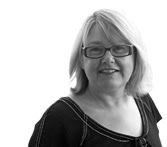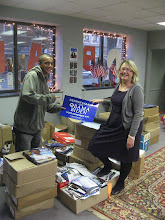“It is groundhog day,” I said to Nigel, as I buckled my seat belt.
We had just spent seven days with the two young men, as Rijard drove us across Madagascar and as far up the east coast as roads, and bridges, would allow.
Yet we knew nothing about them, except that they may be brothers, that Rijard is 29 and Danny thinks he is 26.
Rijard is single and Danny has two children, a three-year-old and a one-year-old.
Oh, and Danny has something to do with a patisserie.
We never did find out why Danny had come along on the trip. “Security”, explained Njara, the travel agent, but security against what we wondered as the most frightening things we encountered during our trip were a few mosquitoes and a couple of raw pizzas.
We tried hard to communicate with them, but we know only three words in Malagasy and we soon discovered our school French was of little use.
Rijard managed to tell me he couldn’t understand anything I said because of my thick Scottish accent and Nigel fared little better when he tried to engage him in conversation about football and lemurs.
His English was very basic. His cheery “fine?” each morning meant “did you have a good night’s sleep”.
“Money for bed” meant he needed more cash for a hotel room so he too could have a good night’s sleep.
Occasionally he would point out something of interest: “sea” as we passed the Indian Ocean ;“national park” as we drew up at the entrance to Andisabe; Madagascar’s most popular reserve and “thank you” when Nigel gave him more cash, but for the most of our time together there was silence.
It was an unproductive silence as I was desperate to ask Rijard questions about his beautiful country.
Many of them may seem like silly, even pointless questions, such as “what time do the shops usually open in the morning?” and “do Malagasy men help out with housework?”
My particular favourite, after seven days of Rijard dodging large lorries and over-taking on blind corners was: “why do Malagasy men drive so recklessly?”
Facetious maybe, but it is exactly this kind of trivia that helps me get a feel for a country.
I can turn to a guide book for the hard facts about a country’s flora, fauna and visitor attractions, but I want to know more - what makes people tick? What they think of their government? What is the most popular TV programme? Their favourite tipple?
I will be forever grateful to Peter Potani, who, three years ago, greeted me off a plane to Malawi, on my first ever trip to his country and Africa.
He took a few days to adjust to my informality and constant stream of questions, but by the end of the week he had taught me more about his country’s language, culture and customs than any number of FCO briefings or guide books.
During the course of that first week we also became firm friends, a friendship that has strengthened with each visit to Malawi.
In two weeks time Nigel and I are going to his wedding. He and his partner Debra are now a part of our lives, our family in Malawi, and all because we shared a language.
Never underestimate the power of speech.
I can turn to a guide book for the hard facts about a country’s flora, fauna and visitor attractions, but I want to know more - what makes people tick? What they think of their government? What is the most popular TV programme? Their favourite tipple?
I will be forever grateful to Peter Potani, who, three years ago, greeted me off a plane to Malawi, on my first ever trip to his country and Africa.
He took a few days to adjust to my informality and constant stream of questions, but by the end of the week he had taught me more about his country’s language, culture and customs than any number of FCO briefings or guide books.
During the course of that first week we also became firm friends, a friendship that has strengthened with each visit to Malawi.
In two weeks time Nigel and I are going to his wedding. He and his partner Debra are now a part of our lives, our family in Malawi, and all because we shared a language.
Never underestimate the power of speech.


